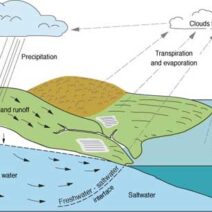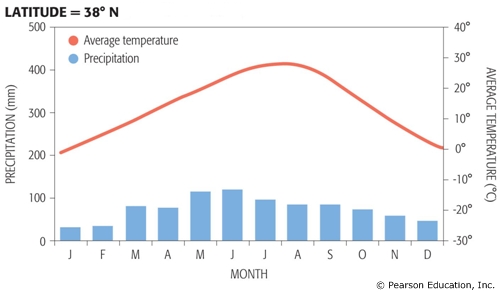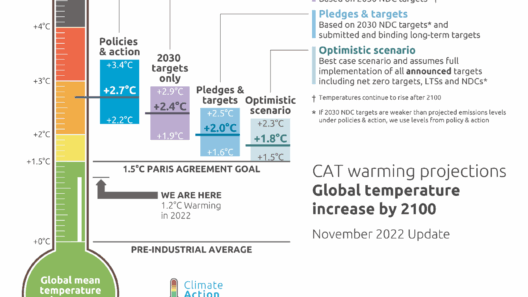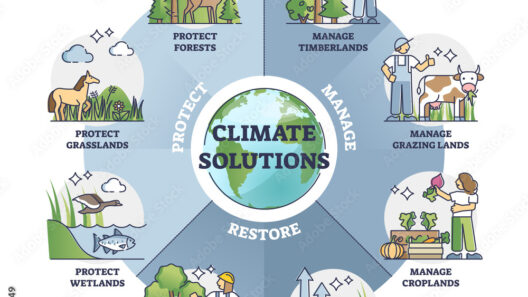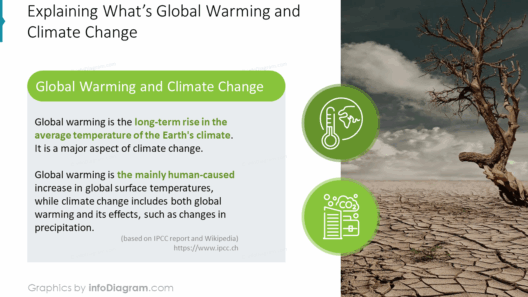Global warming constitutes an existential crisis, reshaping our planet in ways both starkly visible and subtly insidious. Despite its abstract conception, the effects of climate change are tangible, affecting the lives of individuals and communities worldwide. Understanding how people are impacted is critical in fostering a sense of urgency in addressing this calamitous phenomenon.
The rising temperatures attributed to global warming have begun to manifest in distinct patterns. One poignant observation is the increasing frequency and severity of extreme weather events. These range from hurricanes and wildfires to floods and droughts. Such events not only inflict immediate harm but also lead to long-term socio-economic repercussions. As communities grapple with the aftermath, the emotional toll becomes evident. People are displaced, homes are destroyed, and livelihoods are obliterated, leaving a trail of despair in their wake.
Delving deeper into the nexus of climate change and human experience reveals a multitude of underlying reasons for concern. Psychological effects, often overlooked, are as significant as the physical manifestations. Anxiety and uncertainty about the future loom large in the collective consciousness. This phenomenon, termed eco-anxiety, encapsulates the dread stemming from an awareness of environmental degradation. It is not merely a response to current hardships but a profound reflection on the implications for future generations. This anxiety can precipitate a range of mental health issues, from depression to post-traumatic stress disorder, illuminating the extensive impact of climate change on all facets of life.
The disconnection from nature that many urban dwellers experience may exacerbate these feelings. In societies dominated by technology, the immediacy of climate crises often seems distant. While advancements afford convenience, they also distance individuals from the environmental repercussions of their lifestyles. This disconnection amplifies the abstract nature of climate change and hinders effective engagement with the issue. Without direct experience or exposure, individuals might regard global warming as an intangible concern, relegating it to the periphery of their lives.
Moreover, the differential impacts of climate change on vulnerable populations are stark. Low-income communities, often lacking the resources to adapt or recover, are disproportionately affected by climate disruptions. Access to essential services, such as healthcare and housing, can be severely compromised in the face of environmental catastrophes. The compounding nature of these struggles can create a vicious cycle, trapping individuals in a state of perpetual vulnerability. Efforts must be directed at addressing these inequities, as climate justice becomes an essential facet of the broader environmental movement. By highlighting the plight of those most affected, the narrative of climate change shifts from an abstract discussion into a pressing human rights issue.
Economically, global warming signals precarious consequences. Agriculture, a cornerstone of human sustenance, faces dramatic shifts due to altered weather patterns. Crop yields fluctuate unpredictably, leading to food insecurity in many regions. The ripple effects extend beyond immediate food supply concerns; they intertwine with social stability, economic viability, and public health. In some instances, the scarcity of resources can lead to conflict, further endangering communities already grappling with the repercussions of climate change.
On a global scale, the interconnectivity of economies insists on a collective response to the challenges posed by climate change. The concept of climate migration is increasingly coming into play, wherein populations flee their homes due to uninhabitable conditions. Countries unprepared for sudden influxes of climate refugees may experience strain on infrastructure, further complicating social and political landscapes. Understanding these dynamics is crucial in shaping policy responses that not only mitigate climate change but also accommodate those affected by its worst consequences.
The role of education in combating climate confusion cannot be overstated. Initiatives at various levels—from local communities to global organizations—aim to enhance awareness regarding the socio-political and environmental crises that global warming precipitates. Planting the seeds of knowledge nurtures a generation better equipped to advocate for sustainable practices. The importance of environmental literacy is not merely academic; it is a pathway toward empowerment. By understanding the intricacies of climate change, individuals can mobilize for action, transitioning from a standpoint of fear and isolation to one of communal resilience and proactive engagement.
Ultimately, the realization of the profound effects of global warming requires a paradigm shift. It is critical to foster a connection between the abstract and the real—between the numbers that depict rising CO2 levels and the human stories that accompany them. In doing so, we galvanize collective support for climate action and propel a movement characterized by empathy and urgency. Every individual’s experience woven into the larger narrative of climate change reminds us that this is not just an environmental issue; it is a societal one, deeply interlaced with human dignity, health, and equality.
The road ahead presents formidable challenges, yet it is emboldened by the potential for transformation. As awareness expands and urgency mounts, the struggle against global warming can evolve from an abstract discourse into a vibrant, actionable cause. Addressing the myriad ways people are affected by climate change is imperative—not merely to frame the conversation, but to effect real, lasting change.

